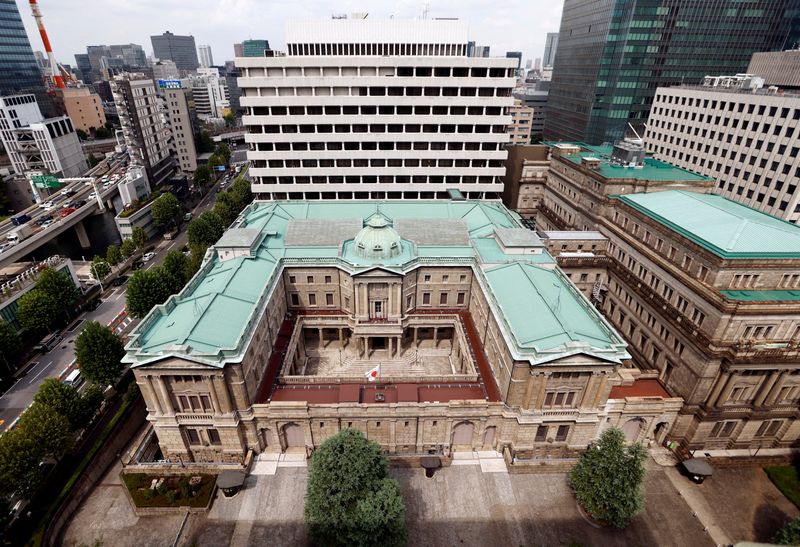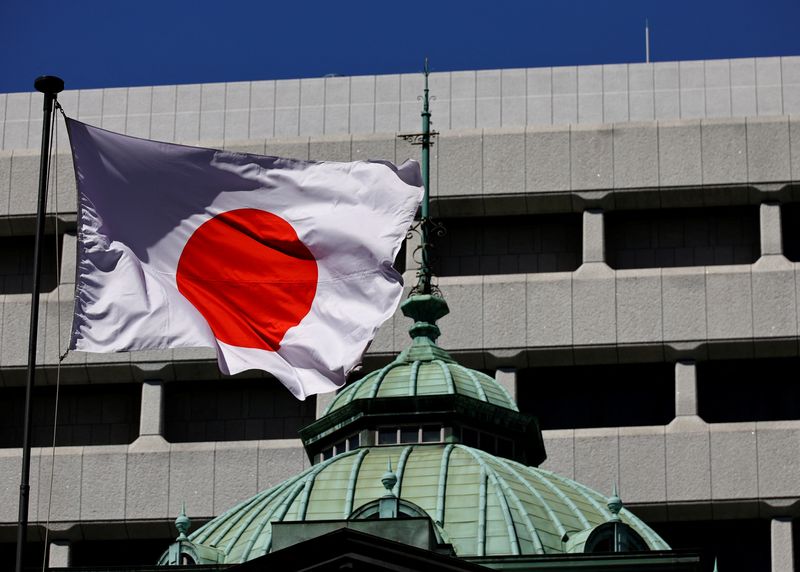By Leika Kihara and Takahiko Wada
TOKYO/AKITA, Japan (Reuters) -The Bank of Japan will continue to raise interest rates if inflation moves in line with its forecast, policymaker Junko Nakagawa said, signalling that last month's market rout has not derailed the bank's plan to hike borrowing costs steadily.
But the central bank must take into account the impact that such market moves could have on the outlook for the economy and prices when considering whether to raise rates, she added.
Her comments pushed up the yen as markets took them as a renewed sign the BOJ could raise rates in coming months. The dollar stood at 140.79 yen on Wednesday, down more than 1% and hitting the lowest level since Dec. 28, also weighed down by the outcome of the U.S. presidential debate.
"Given real interest rates are currently very low, we will adjust the degree of monetary support, from the standpoint of sustainably and stably achieving our 2% inflation target, if our economic and price forecasts are met," Nakagawa said in a speech to business leaders in northern Japan on Wednesday.
Core consumer inflation hit 2.7% in July and has been at or above the 2% target for 28 consecutive months.
Nakagawa's remarks follow those by another member of the BOJ's policy board, Hajime Takata, who said last week the BOJ must stay on course to raise rates - but tread carefully to ensure volatile markets do not badly hurt businesses.
The BOJ is set to leave rates unchanged at its next meeting on Sept. 20, but more than half the economists polled by Reuters last month predict further tightening by the year's end.
"Judging from data released since our previous meeting in July, economic and price conditions seem to be on track," Nakagawa told a news conference after the meeting with business leaders.
"But markets remain unstable," Nakagawa said, adding that she had no pre-set idea on the timing and pace of further rate hikes.
The BOJ ended negative interest rates in March and raised its short-term policy rate target to 0.25% in July - landmark actions away from a decade-long, massive stimulus programme.
The July rate hike, coupled with weak U.S. jobs data released in early August, pulled the yen up against the dollar and triggered a plunge in global share prices.
While stressing that there was no major change in Japan's sound economic fundamentals, Nakagawa said the BOJ "must look back upon market developments" after its July policy shift, and assess their impact on the economy.
Japan's economy expanded an annualised 2.9% in April-June as steady wage hikes underpinned consumer spending. Capital expenditure continues to grow, though soft demand in China and slowing U.S. growth cloud the outlook for the export-reliant country.
Nakagawa warned that overseas uncertainties were risks to Japan's economy but said consumer spending will rise moderately due to higher wages, and help accelerate trend inflation.
She also said there were upside risks to Japan's price outlook due to the country's tight job market and continued rises in import prices.

"There's a chance wage growth may overshoot expectations due to tight labour supply, so we need to be mindful of the risk that inflation may exceed our target," Nakagawa said in the speech.
Formerly chairperson of Japan's Nomura Asset Management, Nakagawa is considered by markets as neutral in her stance on monetary policy.
